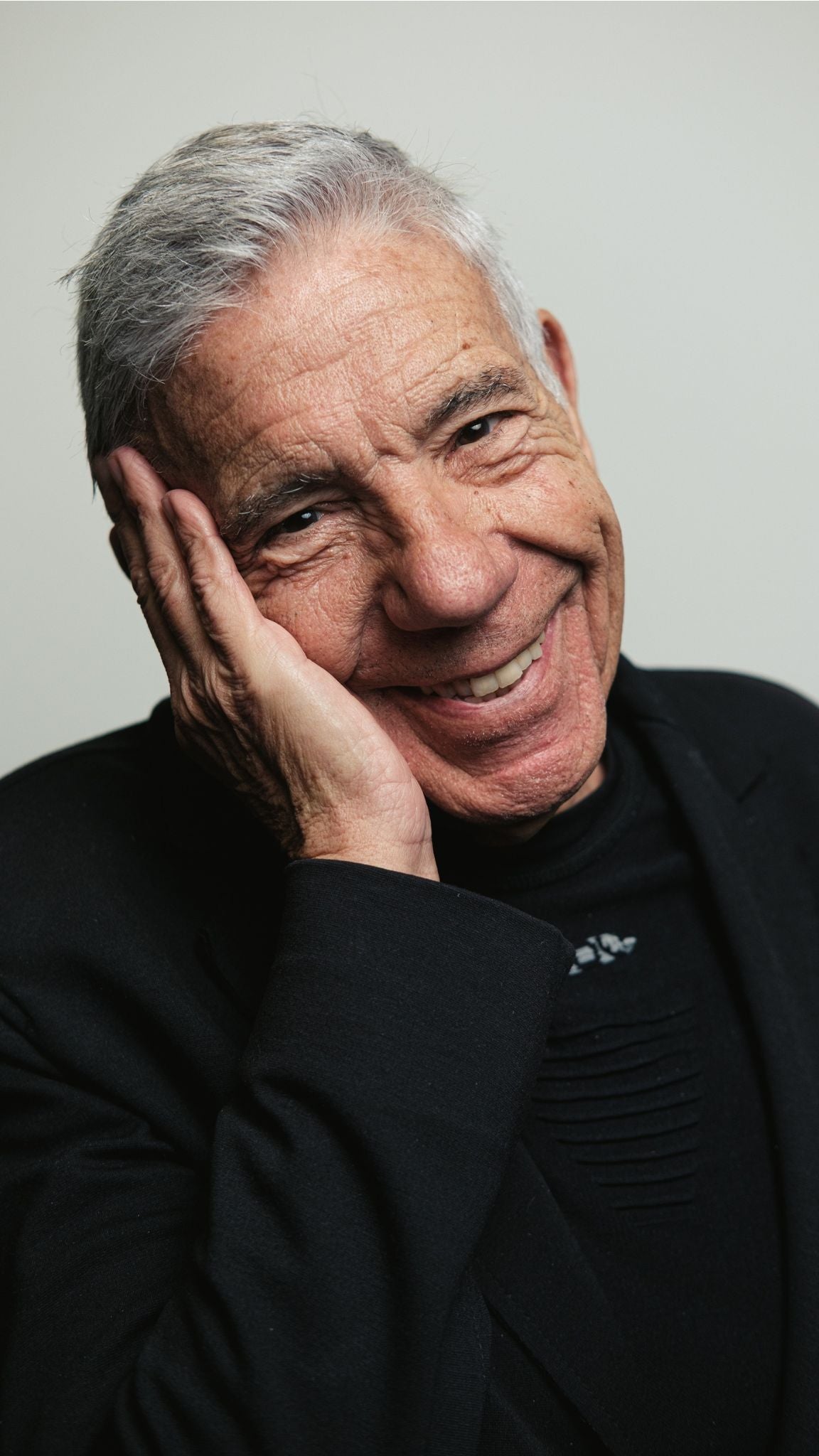Dr. Eduard Estivill , visited René at the ZZEN Talks, and today we tell you everything they talked about.
Dr. Estivill is one of the leading specialists in sleep medicine in Spain, and he answers one of the most frequently asked questions in any medical consultation or conversation: Why can't I sleep well?
In addition, throughout the interview, the doctor debunks myths, explains key concepts and shares practical tools to understand and improve the quality of our sleep. Here are the highlights of the episode.
Table of contents
The dream, a repair shop
‘The first thing to understand is that sleep is a repair shop.’
This is how Estivill begins. For him, sleep is not a luxury, nor a prize of the day: is a biological necessity that allows us to repair everything we have spent during the day, both on a physical and mentallevel. And the amount of repair each person needs varies... especially according to age. Therefore...
How much sleep do I need?
It depends…
5 year olds: they move, learn, spend energy constantly → they need at least11 hours of sleep.
Adolescents aged 16-17: they still learn, develop and live with high demands → they require about 9 hours.
Adults: may need between7 and 8 hours, but the key is not just in the number, but in how we feel the next day.
What he emphasises above all is that Monday to Friday I sleep 5 and on Saturday and Sunday I recover. Because you do recover, but not what you have lost.
‘The only way to know if you have slept well is to see how you are during the day’.
If you have slept 6 hours, but you feel in a good mood, focused, energetic and able to react normally, then that time has been enough for you. The problem is that many people think they are getting the sleep they need, but in reality they live with a chronic fatigue that they consider ‘normal’.
The sleep routine starts when you wake up
One of the most powerful concepts in the episode is the chronobiology of sleep. The process of getting a good night's sleep begins as soon as we open our eyes in the morning.
“Sleep is born when you open your eyes in the morning.”
Throughout the day, the body accumulates signals that prepare the brain for rest at night. This includes:
Exposure to sunlight (regulates the biological clock)
Do some physical activity (even if it means walking 1 km a day)
Avoid large stimulants such as excessive caffeine.
Reducing screens at night
Have an early dinner and switch off from work before going to bed.
Therefore, a good night's sleep is not something that is triggered by turning off the light. It is a process that is prepared all day long .
The mistake of thinking that too little sleep is for ‘successful people’.
Dr. Estivill clearly criticises one of the most dangerous ideas of social networks: that ‘sleep is for lazy people’ or that successful people get very little sleep.
He claims that even public figures who claim to sleep little actually do so ‘in bits and pieces’ or through compensatory naps. The body needs sleep. And when it doesn't, it pays for it: lack of concentration, irritability, metabolic or cardiovascular diseases, cognitive impairment, etc.
What about sleep supplements? Do they work?
Dr. Estivill is in favour of the use of natural suplements, but only as a support, and never as a substitute for proper habits.
He even says that his daughter, Dr. Carla Estivill, is the creator of the three-layer melatonin, valerian and passionflower tablets.
Also remember that there are over 40 different causes of insomnia. Therefore, no one supplement will work for everyone. And that before resorting to a product, it is essential to review lifestyle habits, stress level, sleep hygiene, and if necessary, consult a specialist.
Because, as Dr. Estivill says, if you drink 20 coffees a day, the sleep supplement won't do you any good. It must be accompanied by good habits.
How to prepare for quality sleep (according to Estivill)
These are Dr. Estivill's recommendations to improve the quality of rest in a realistic way and without magic solutions:
Wake up at the same time every day:
Eat a good and early breakfast.
Do moderate physical activity and get some sunshine.
Change small habits (get off one stop earlier, walk 10-15 minutes).
Early dinner.
Switch off from work at least 2 hours before going to bed.
Avoid screens and intense stimuli at night.
And if you need it, you can get support from natural sleep supplements, always as a complement to these guidelines.
In short: getting a good night's sleep is a daily responsibility
Sleeping well is not a matter of luck, genetics or age. It is a matter of respecting the body's rhythms, of knowing how sleep works, and of applying daily habits that favour it.
As Estivill says, it's not just about counting hours, it's about knowing whether your ‘repair shop’ has worked:
"If you are well during the day, you have had enough sleep. It's as simple as that."
You can listen to the full episode here:
¿Por qué no puedo dormir bien? Sueños, trucos y mitos – con el Dr. Estivill









Leave a comment
This site is protected by hCaptcha and the hCaptcha Privacy Policy and Terms of Service apply.